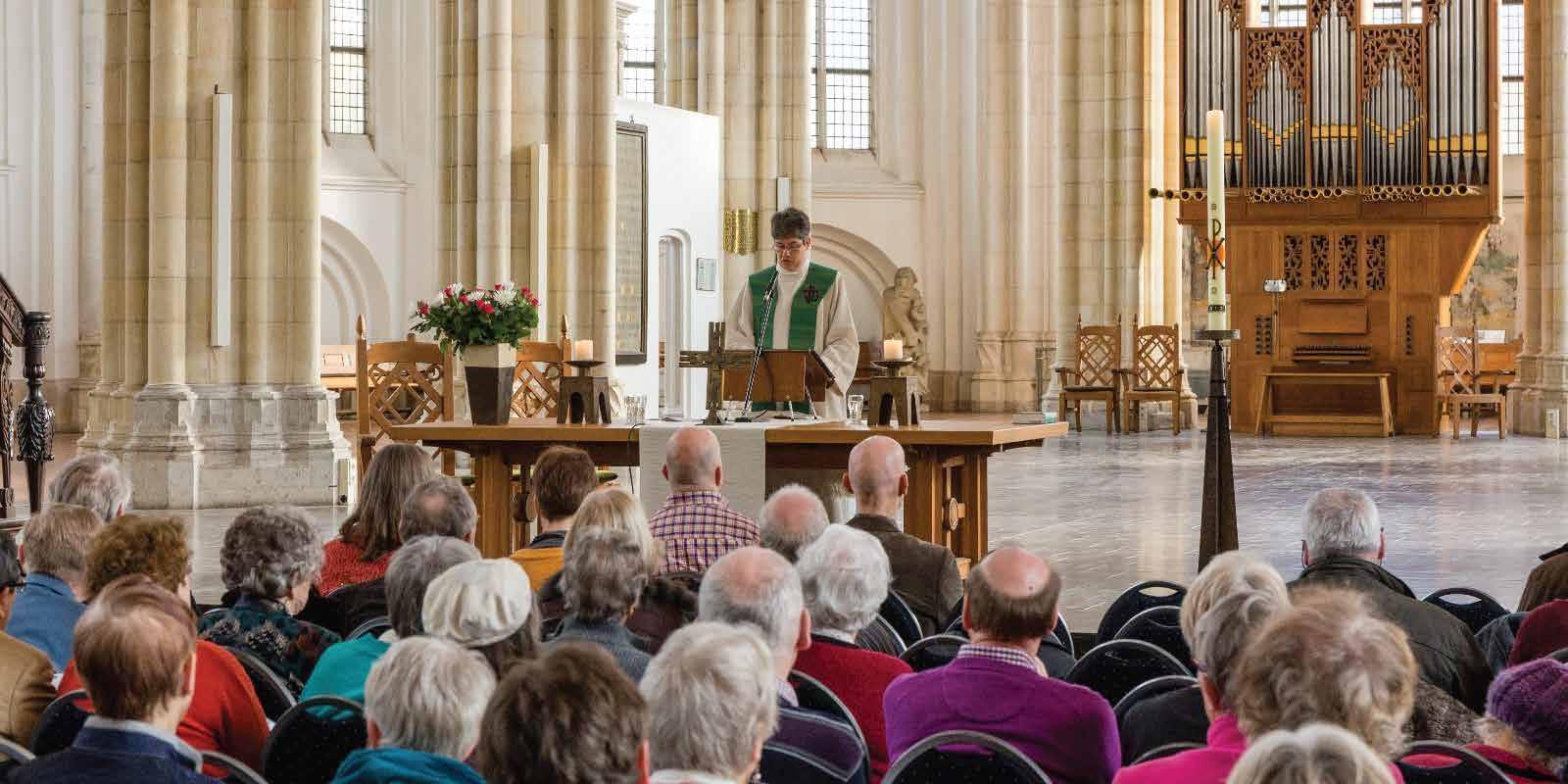
4 minute read
Towards 2040: The future of the church is not our responsibility
By Rev Dr René de Reuver, General Secretary of Protestant Church in the Netherlands (PKN)
he beginning of 2020 marks the start of a new decade. A time T to look back and look ahead. Also, as a church. How have we been, personally and as local congregation and what are the developments of the church as a whole? Where do we want to go to, what do we hope for? What do we pray for? What visions do we have for the coming decades?
In the first twenty years of this century, a lot has happened for the former Reformed Churches in the Netherlands, the Dutch Reformed Church and the Evangelical-Lutheran Church. 2004 is the year these churches united. December 11, 2003 was an important day for these churches. All three synods decided independently to merge on that day. After this, members of the synods from the three churches came together in the Domkerk in Utrecht, in the presence of Queen Beatrix, to thank God for this choice to continue together. For many this was a day of joy, but for some, especially members of the Dutch Reformed Church, it also was a day of sadness because of the schisms that happened as a consequence, sometimes even across families.
Merger
The finalisation of the tiring merger process changed the outlook of the church. The Protestant Church in the Netherlands created a missionary department and a youth movement. A missionary movement started. Many congregations started to think about a movement outwards, trying to make contact with people who are not familiar with the Christian faith or became estranged from it. Local congregations started to pioneer, city communities focused on young people and ministers went searching for new ways of being church. Other congregations felt strengthened in their efforts to improve the quality of life in their village or city district, in their diaconal efforts, in organising missionary courses such as Alpha or in Bible study groups.
During this process pioneering spots evolved: new ways of being church for people who are not or are no longer involved in a church. Always as part of – not in competition with – a local congregation, which supports the initiative financially and prayerfully. Now, fifteen years after 2004, some of these spots have grown into small, independent congregations (‘kerngemeenten’) within the Protestant Church.
An ageing church
At the same time the church keeps shrinking and aging – only 8 percent of the practicing members is under the age of 40 – and church buildings have to be abolished. Those are painful numbers. That other institutions are also shrinking is scant comfort. In many places this shrinkage leads to forced efforts to keep all activities running and under control for as long as possible. As a result, less people have to do more and more, volunteers are overburdened and get exhausted. A situation like this resembles a fyke net: the net closes more and more until there is no way out. The forced efforts block the search for new ways. Something new will then be received as ‘we have to do even more’.
On the other hand, the church have been encouraging congregations for some years now to return to their core activities. To look with open instead of cramped hands for what is of value. For what people feel called to do. For what keeps them going. Central in this is the conviction that the church lives from grace, from God’s gifts. We are not called to save the church – God himself will take care of that – but to live from his grace and to be there where He can be found.
If possible, together with others.
Isolation
As a missionary church, the Protestant Church has consciously chosen for diverse forms of being church. Our complex society, in which old institutions are less and less appealing to people, asks for this. The secular context asks old questions anew. One of them is the question of the ministries. Reflection on this is ongoing. Not in an inward churchly discussion, but driven by the challenge to be, in a diverse way, there where God lets himself be found. The time of isolation is over. We need each other more than ever.
The future of the church in our country is uncertain. No one can predict what the church will be like in twenty years. What we see is that many are looking for meaning and spirituality. Big issues such as evil and guilt, loss, fear, suffering and death are more topical than ever. In this context the church searches for the movement of the Spirit. The gospel is not intended for a small group, but for everybody. God cares about the whole world: ‘For God so loved the world, that he gave his only Son, that whoever believes in him should not perish but have eternal life.’ (John 3:16, ESV)
Following Jesus, the church is called to be present in society, especially in its frayed edges. To be there where people get lost or drown in loneliness – literally or figuratively. To stand up for vulnerable lives. For a creation that is weighed down by depletion and pollution by humans. To be welcoming, even if that feels uncomfortable and costs a lot. Jesus himself shows us how to do that. What that cost Him, the gospels tell us. I believe that we can go ahead in confidence. Because: the future of the church is not ours. God himself takes care of the church. To know this de-stresses, relaxes and inspires.







